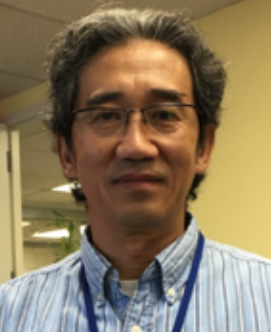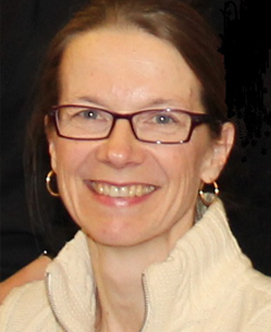
Max Guo, PhD
Dr. Guo is the Chief of the Genetics and Cell Biology Branch, Division of Aging Biology at the National Institute on Aging (NIA), NIH. Trained as a molecular biologist and biochemist, he obtained a PhD in Biochemistry on study of RNA splicing with Dr. Alan Lambowitz from the Ohio State University in 1992. He did his postdoctoral training on oncogenes with Dr. J. Michael Bishop at University of California at San Francisco.
Before joining NIH as a Program Officer in 2002, he was an Assistant Professor of Cancer Biology at the Sidney Kimmel Comprehensive Cancer Center of Johns Hopkins Medical School.

Michelle Heacock, PhD
Dr. Heacock received her doctorate from Texas A&M University in College Station, Texas for her work on the interplay between DNA repair proteins and telomeres. Her postdoctoral work was conducted at NIEHS where she studied the DNA repair pathway, base excision repair. Her research focused on understanding the cellular toxicity caused by DNA damaging agents.
Michelle is currently a health science administrator where she oversees Superfund Research Program (SRP) grants that span basic molecular mechanisms of biological responses from exposures to hazardous substances, movement of hazardous substances through environmental media, detection technologies, and remediation approaches.

Lisbeth Nielsen, PhD
Dr. Nielsen holds a BA in Philosophy from Rhodes College, a Master’s degree in Psychology from Copenhagen University, and a Ph.D. in Cognitive Psychology and Cognitive Science from the University of Arizona. Dr. Nielsen is director of the Division of Behavioral and Social Research (BSR). Nielsen has a long history of leadership in the behavioral and social sciences at NIH, having served in leadership roles in the NIH Science of Behavior Change (SOBC) Common Fund program and the trans-NIH Basic Behavioral and Social Sciences Opportunity Network (OppNet).
As Chief of the Individual Behavioral Processes Branch at NIA, Nielsen has overseen substantial growth in behavioral, psychological, and integrative biobehavioral research. She has been an advocate for the study of aging processes across the full life course, including research on early life influences on later life outcomes and on processes in midlife that play a causal role in shaping trajectories of aging.
